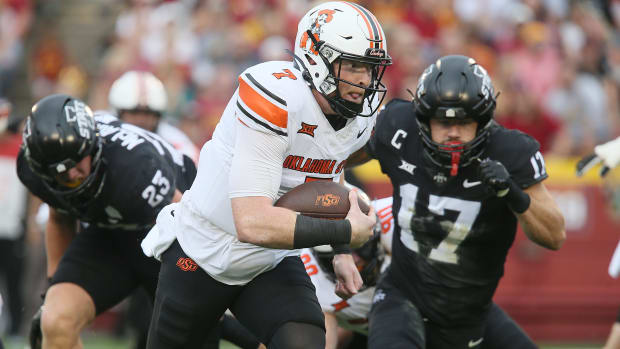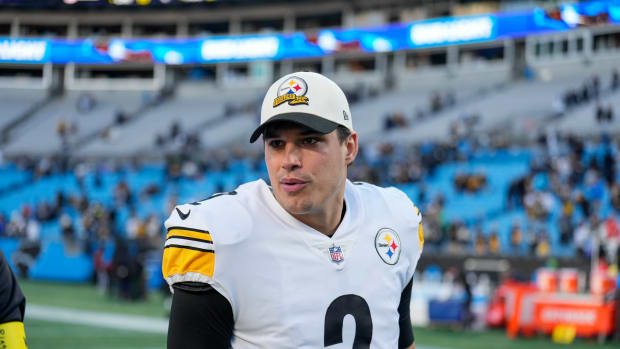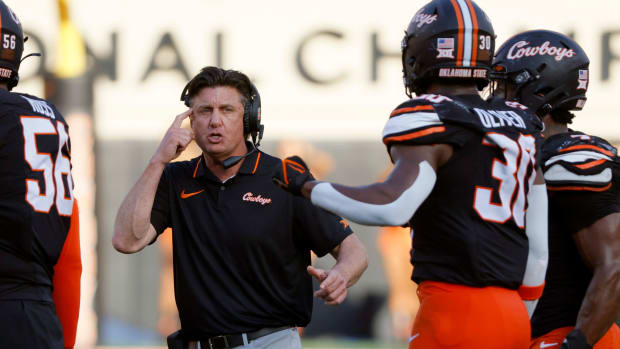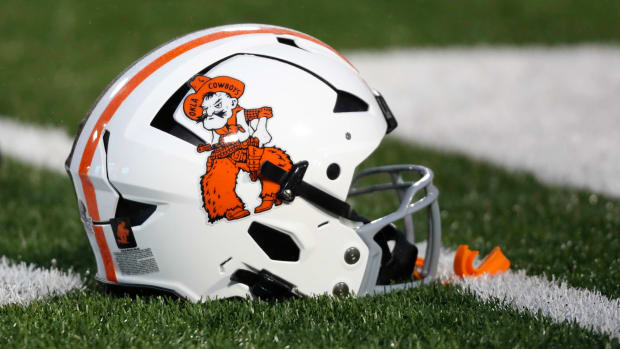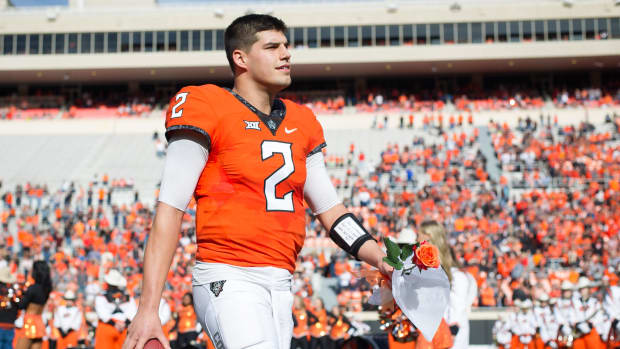Gundy Compliments Big 12 and Cardiologist that Helped Big 12 Decide Speaks to The Athletic
STILLWATER -- In his 25 minute Zoom conference with the media on Monday morning (Aug. 17) Oklahoma State head coach Mike Gundy was very complimentary of the Big 12 and of conference commissioner Bob Bowlsby. Of course, it has been no secret throughout this pandemic that like most college head football coaches Mike Gundy wants to coach his team and play football.
"I was proud of the Big 12 Conference and commissioner Bob Bowlsby for moving forward," said Gundy in a very much to the point mode to most questions.
Part of what Bowlsby and the Big 12 leadership did before voting to move forward with the football season was listen to their medical advisory team, which in some cases was similar to the other leagues, including the Big Ten and Pac-12 that came to a different conclusion.

Dr. Michael J. Ackerman is a genetic cardiologist for the Mayo Clinic and a key advisor to the Big 12 from a medical standpoint in going forward with the football season.
Mayo Clinic
One advisor that was different was the Big 12 heard from Dr. Michael Ackerman, a genetic cardiologist at the Mayo Clinic. Ackerman specifically addressed the heart damage that COVID-19 is now being considered responsible for. It is speculated the presence of myocarditis in some post coronavirus patients was a major factor for the Big Ten and Pac-12 in their decisions.
The Athletic contacted Ackerman and published a Q-and-A with him on the issue and how he advised the Big 12.
"The COVID-19 heart issue has suddenly emerged as the big, bad boogeyman and now we need to shut down the season, and that’s why I threw down the Twitter penalty flag, because I simply had said if those conferences were using that organ, the heart, and that recent paper that came out as the primary evidence to cancel a season, I called foul.
If they have other reasons they view it’s in the best interest of their athletes and their universities other than the heart, then put forward those reasons, and right-minded people can agree to agree or agree to disagree as to whether they’re convinced those reasons are enough.
Gundy complimented his medical team that is headed within the West End Zone by team doctor, Dr. Val Gene Iven, head of sports medicine John Stemm, and football head trainer Scott Parker. They have had Oklahoma State way ahead of the game on the post COVID-19 issues and myocarditis. Oklahoma State's medical staff had post COVID-19 positives all go through heart tests including EKG, cardiac MRI, and blood tests. Bascially, those are all the protocols called for by the Big 12 Conference. OSU was ahead and really ahead in that they had baseline levels from all the athletes as they were given EKG tests when they came into the program.
"Our medical team with our doctors, trainers and staff have been fantastic and have put us in a position that’s somewhat unbelievable with where we’re at right now," Gundy said.
When Oklahoma State started football practice back on Aug. 5 there were 8-12 players that were working out on a third field with the strength and conditioning staff because they had not passed their physicals to go full out. That number has dwindled down as players have met their baseline numbers.

Linemen are the players most at risk when it comes to heart issues post COVID-19.
Bruce Waterfield - Oklahoma State University Athletics
It is that being thorough that has punctuated Oklahoma State and had them conquer the two issues that Dr. Ackerman told the Big 12 they needed to deal with in order to go on with a football season. It is critical because there are still unknowns with COVID-19.
"One is, do you have a season proceed in the face of the awareness and now experience that this virus can infect the heart and cause heart damage? Rarely, I might add, in young people who are healthy," Ackerman said in the Q-and-A with The Athletic. "That infection and damage to the heart muscle has been predominately in 50-year-olds and older and predominantly in those who are obese. So not really a fair comparison to say that’s going to happen in an 18-to 24-year-old with Sars-CoV-2 infection.
"The other is, what if I am an 18- to 24-year-old athlete who already has the infection," he continued. "How careful do my team, my team physician and I need to be with me to get me reinstated to play, because of the possibility of the virus impacting my heart muscle?"
The answer is careful. Oklahoma State has been and now the Big 12 is mandating that all of their members do the same.
